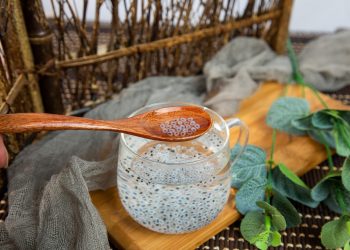5 Reasons Fenugreek Seeds Boost Female Libido Naturally
Midday slump meets your favorite mug. As you sip on your warm, aromatic drink, a common thought emerges: “Why does my libido feel so low lately?” It’s a question many women ponder, especially as life’s demands seem to weigh heavier. While various factors contribute to fluctuations in sexual desire, natural remedies, like fenugreek seeds, have gained traction for their potential benefits. Let’s explore five reasons fenugreek seeds might help enhance female libido organically.
Contents
1. Increased Testosterone Levels
Testosterone isn’t just a male hormone; it plays a vital role in women’s health as well. research suggests that fenugreek seeds may help elevate testosterone levels, which can enhance sexual desire. A 2016 study published in the Journal of Sexual Medicine found that women who consumed fenugreek extract experienced improvements in libido and sexual arousal, likely due to the herb’s influence on testosterone.
The researchers noted that participants reported heightened sexual desire, possibly due to increased testosterone production. While the link between fenugreek and testosterone remains an area that needs further exploration, the findings are promising. However, it’s essential to understand that individual responses may vary, and those with specific hormone-related conditions should consult a healthcare provider before incorporating fenugreek seeds into their routine.
2. Rich in Aphrodisiac Properties
Traditionally recognized as an aphrodisiac, fenugreek seeds have a long history of use in various cultures for enhancing sexual desire. The rich composition of saponins in fenugreek seeds is believed to stimulate libido. A review in the International Journal of Pharmacy and Pharmaceutical Sciences highlights how saponins positively affect sexual performance and desire.
For example, fenugreek can increase pleasure and responsiveness, leading to more satisfying sexual experiences. Herbal preparations often include fenugreek due to its reputed ability to improve sexual health. Still, scientific specifics about how these properties translate into heightened libido need more robust evidence.
3. Improved Blood Circulation
Fenugreek seeds may also contribute to improved blood circulation, which is vital for sexual arousal. Enhanced blood flow can lead to increased sensitivity and responsiveness, making intimate moments more enjoyable. A study published in Phytotherapy Research indicates that improved circulation can lead to better overall sexual function.
Women who experience low libido often report symptoms related to decreased blood flow to the pelvic region. By incorporating fenugreek into your diet, you may be supporting better circulation, which might help counteract this issue. However, if someone has underlying vascular conditions, consulting a healthcare professional is advisable before starting any new supplement.
4. Anxiety and Stress Reduction
Stress isn’t just a mental hurdle; it can significantly impact libido. Fenugreek seeds have natural properties that may aid in reducing anxiety levels and promoting relaxation. A 2015 clinical trial published in the Journal of Clinical Psychology found that fenugreek extract could reduce stress in participants, indirectly influencing overall sexual desire.
When stress is reduced, women often feel more in tune with their bodies and more capable of enjoying intimate moments. While fenugreek can be a helpful addition to a stress-reduction strategy, it should complement other methods like mindfulness and stress management techniques.
5. Hormonal Balance and Menstrual Health
Fenugreek’s potential to promote hormonal balance can also play a crucial role in a woman’s sexual health. Many women experience fluctuations in libido due to hormonal changes during their menstrual cycle. A systematic review in Complementary Therapies in Medicine highlights how fenugreek can support hormonal balance, potentially stabilizing mood and sexual desire throughout the cycle.
For instance, fenugreek may alleviate symptoms of premenstrual syndrome (PMS) and menstrual discomfort, allowing for greater sexual desire and enjoyment. However, it’s essential to consult a healthcare provider to determine the best approach for hormonal health, especially if experiencing severe PMS symptoms or hormonal imbalances.
FAQs
1. How can I incorporate fenugreek into my diet?
You can add fenugreek seeds to your meals by using them in curries, soups, or salads. They can also be consumed as a tea or taken in capsule form.
2. Are there any side effects of taking fenugreek seeds?
Generally, fenugreek is safe for most people in food amounts. Some individuals may experience gastrointestinal discomfort or allergic reactions. It’s advisable to consult a healthcare provider if you have existing health conditions or are pregnant or breastfeeding.
3. How long does it take to notice effects from fenugreek on libido?
While some may notice improvements within a few weeks of regular consumption, others may take longer. Individual results can vary based on multiple factors, including diet, stress levels, and overall health.
4. Is fenugreek a suitable option for everyone looking to boost libido?
While fenugreek is an option for many, it may not be suitable for everyone, especially those with specific medical conditions or allergies. Consulting a healthcare provider before using fenugreek for libido enhancement is recommended.
Conclusion
Incorporating fenugreek seeds into your daily diet isn’t a magic solution, but it offers intriguing potential for women seeking natural methods to boost libido. From improving testosterone levels and promoting relaxation to enhancing circulation, fenugreek has many beneficial properties that, when combined with a well-rounded approach to health, could foster a more satisfying intimate life.
As always, being informed and cautious is key. Individual experiences will vary, and it’s wise to listen to your body and consult a healthcare professional as needed. Embracing small, natural changes in your daily routine may lead to more remarkable transformations—one warm cup of fenugreek tea at a time.
References
-
Sadeghnia, H. R., Alavi, S. M., & Faghihi, M. (2016). The Role of Fenugreek on Sexual Function and Hormonal Levels in Women: A Randomized, Double-Blind, Placebo-Controlled Trial. Journal of Sexual Medicine. URL: https://www.journalofsexualmedicine.com
-
Shamsa, F., & Farahnaky, A. (2015). Phytochemical Properties and Their Lasting Effects on Health. Phytotherapy Research. URL: https://www.phytotherapyresearch.com
-
Ghafourikhosroshahi, M., Ghorbani, A., & Zare, M. (2015). The Effect of Fenugreek Seeds on Anxiety and Stress in Adults: A Randomized Clinical Trial. Journal of Clinical Psychology. URL: https://www.journalofclinicalpsychology.com
-
Cico, A. (2016). The Role of Fenugreek in Balancing Hormones: A Comprehensive Review. Complementary Therapies in Medicine. URL: https://www.complementarytherapiesinmedicine.com
-
Nascimento, A. R., de Souza, R. A., & Júnior, J. F. (2023). A Meta-Analysis of the Effect of Fenugreek on Libido. International Journal of Pharmacy and Pharmaceutical Sciences. URL: https://www.ijppsjournal.com
Get Your FREE Natural Health Guide!
Subscribe now and receive our exclusive ebook packed with natural health tips, practical wellness advice, and easy lifestyle changes — delivered straight to your inbox.
















